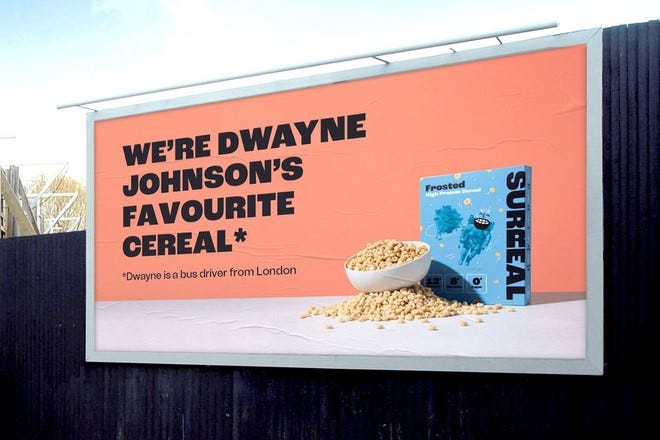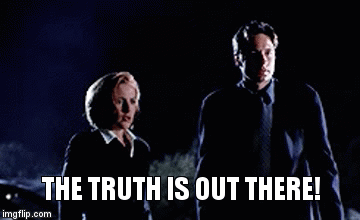♟ Strategy = Perspective, Patterns, and People
5 questions and answers about strategies with Rob Estreitinho, Planning Director on how to identify real insights and create successful marketing.
Hi 👋 I’m Florian Schleicher. This is the FutureStrategies newsletter of FUTURES. Thank you so much for reading along 💚 If you want to learn strategic marketing from me, then my Simple & Sustainable Marketing Academy is the perfect fit for you.
Every good marketing strategy starts with an understanding.
The job of a good strategist is to understand consumer patterns, motivations, and behavior leading into a (buying) decision.
Or as Richard Rumelt puts it in “Good Strategy, Bad Strategy”:
“Good strategy is built on functional knowledge about what works, what doesn’t and why.”
One key success factor in understanding the mechanics of the market is reading a lot.
I have always been sort of a bookworm, but for the past 1,5 years I’ve been reading a lot. Especially other newsletters from experts whose work, and points of view I admire. One of these great minds is Rob Estreitinho, Planning Director at VCCP in London who writes the brilliant Salmon Theory newsletter.
Rob truly understands strategy at its core, shows empathy, and has sharp analytic skills, paired with a good portion of humor. So I invited him for an interview.
Together we talked about the importance of gut feeling vs. big data, and how to truly understand people’s motivations and patterns to craft successful marketing and advertising campaigns. We also touched upon sustainability and why it should be a business strategy - not a marketing thing. And he shared why people pleasers might have a hard time working as strategists and made a good reading recommendation on this.
Here are my 5 questions and Rob's answers:
🎙 The interview
1️⃣ A planner’s or strategist’s job is to get inside the head of the consumers and understand what actually drives them. How do you do that?
There’s a mix of ways, right? The most classic way of answering this is by saying, go observe people in the supermarket, in the streets, using the product, basically go talk to real people. I think as the world goes more hybrid and distributed, you have leaner ways of finding people and talking to them just like you would call someone you know. But basically, spent time with people who look nothing like you, and don’t work in marketing, as they will give you some raw truth and surprise you. The other thing is, don’t ask head-on what people want, because they will give you templated answers around value and quality and that stuff. Find creative ways to ask things, whether that’s through metaphors, analogies, interactive exercises, and so on.
2️⃣ Big data was one of the buzzwords of the 2010s - how important is data in creating brand communications for you and on the other hand - how much do you rely on your gut feeling?
This is a bit like the current discussions around AI and ChatGPT and all that. Does data matter? Sure. Does data make your decisions for you? Only if you’re not very good at your job. Of course, data is how you back yourself and your arguments and help explain to a business why you’re doing the things you do, but if we were to attach a proportion to it, i’d say lean on at least a 50/50 split between the numbers and the narrative you want to make out of them. Because that’s one of the most misunderstood parts of ‘data-driven’, it’s that there’s so many ways of cutting and interpreting a data set that, really, it only feels objective, there’s still quite subjective decision making at play. So at the risk of sounding boring as hell… yeah, both. Gut feeling is an interesting one though, and i feel like as you get more senior it becomes more important because you actually have had enough time to spot patterns, and that in turn gives you more confidence to take a leap without having all the evidence.
3️⃣ How do you know if an insight is really “great”, meaning it will most definitely work for your campaigns?
I’m gonna quote Mark Pollard on this one as he has great stuff on it. Basically an insight is what happens when you say things like ‘this is happening because that is happening’, or ‘people think this but actually this happens’, so those inflection points between expectation and reality, or between cause and effect, are what works for me. Because it actually gives you new ways of looking at a situation, and therefore prompt the creative teams with something different that perhaps the competition haven’t gotten quite around to.
So yeah, don’t just say things like “our audience want convenience” or “they are fashion conscious”, explain why convenience is important (is it because their job primes them to be efficiency machines?) or what they seek by being fashion conscious (is it a gateway to having more good-looking friends?).
4️⃣ Sustainability is on most of people’s minds right now - what role does it play in marketing and advertising?
My view on this is sustainability is a business thing, not a marketing thing, first and foremost. In other words, it’s something you should do at a wider business level, not something that is a quarterly spike of activity or anything like that. Now, sure, you can advertise the sustainable things you do at a business level, but so far i’ve seen no evidence that it’s an effective way to get people to switch brands – not on its own anyway.
What i have seen is that sustainability might be a factor in making you feel good about the brands you use, which is another way of saying that it’s a rational thing you tell yourself after the fact, instead of an emotional thing that gets you to buy. Even Gen Z say they love sustainable brands but then you have Zara and Primark and Shein, so… it’s complicated. In answer to your question, if brands are thinking of it as a bandwagon, that is probably a bad start.
If it’s something that is integral to how the business runs, you’d never see it as a ‘trendy’ thing, it’s just a thing that is part of business as usual. So, if you have credibility, sure, consider it being something that you use in your marketing, but don’t expect that to be the primary driver of growth. If you have no credibility in being sustainable, then well… I’d say you have much more than a marketing problem.
5️⃣ Finally to something entirely different: Why do you think that user-generated comedy is so popular right now on digital platforms like TikTok? And can brands and marketing use this too?
I can’t quite prove this but i think it comes down to people feeling the need to not rely on a system that failed them in many ways. It’s the same reason why people in their 30s and 20s have this propensity to try and be economically independent, or work for themselves, or have side things, or freelance, it’s all a response to yes, greater autonomy, but before all that a response to a system that removed their safety nets. If you had employment for life, you wouldn’t necessarily want to exchange that. Many might, but chances are most wouldn’t. But once you take that away, then you need to sort your life for yourself, and this is where user-generated-content comes in too i think.
You essentially have people trying to carve out careers in entertainment, within a system that effectively rewards very few with massive spoils. So that feeling that ‘anyone can make it’ and you don’t necessarily need the big gatekeepers to spot your talent, it’s massively alluring.
What can brands do? Support up and coming talent, not just the massive ones that will give you minimum reach. Literally you can use them as your research, strategy and content production partners, which i appreciate effectively puts agencies in a tight spot, but i don’t see it as an either/or situation.
The other thing with this is there’s a fine art to knowing how to support someone who’s growing vs. someone who’s established, but you have brands like Gucci and Burberry doing this well with Francis Bourgeois and Sylvaniandrama, respectively. Incidentally, i think fashion brands are probably the ones who do this best because their whole DNA is geared around creativity and spotting emerging talent and giving them a platform. It’s not impossible for others to follow the same model, but i think the business culture of a place will determine a lot of what actually gets made.
3️⃣ Last questions
What book have you just read that you want to recommend?
Please Yourself, by Emma Reed Turrell. It’s about where people pleasing comes from, how to manage it, how to outgrow it. It doesn’t sound like a useful book for strategists until you realise that, in life and work and yes, in the strategic decisions you advise clients to make, you will never be able to please everyone. And that’s ok.
Which brand do you think does a great marketing job at the moment?
SURREAL. It’s a cereal brand. They’re great on LinkedIn (yes really). And they have these bonkers new posters where they claim that celebrities love their stuff, except they just used people with the same names as celebrities.
They’re proper gangsters when it comes to standing out and getting uneven share of attention, relative to what i imagine is a tiny budget compared to the bigger cereal brands out there.
The future of marketing is…
Perspective. On all levels. On being more market oriented. More customer oriented. On embracing the views of real people who don’t spend 40 hours of the week in a business park or doing presentations. On studying the patterns of the past in order to have a more realistic view of the future. On realising that, at the end of the day, you become a much better marketer if you take an interest far beyond just marketing.
〜 end of interview〜
👀 At a glance
Wow, what an interview!
I don’t know about you, but especially while I was reading those last words about the future of marketing, I’ve felt an urge to again embrace a more strategic mindset and Rob really captured the importance of “going out there”, and leave your own echo-chamber.
Strategy is about the experience. And you always feel straight away when someone has been working in a field longer and has seen a lot. As Rob writes, for a strategist experience means you have had enough time to spot patterns, and that in turn provides better results.
The easy thing to say is that people want convenience/security/entertainment. But we need to go deeper and really understand what is going on in society and our target audience.
And about sustainability? It has a lot to do with authenticity or in Rob’s words:
“If you have no credibility in being sustainable, then well… I’d say you have much more than a marketing problem.”
Thanks for reading along!
Rob Estreitinho is a Planning Director at VCCP in London, author of the newsletter Salmon Theory, and co-founder of a daughter. He loves understanding how the internet fits his life, vs. his life fitting the internet. Check out his newsletter Salmon Theory here.









